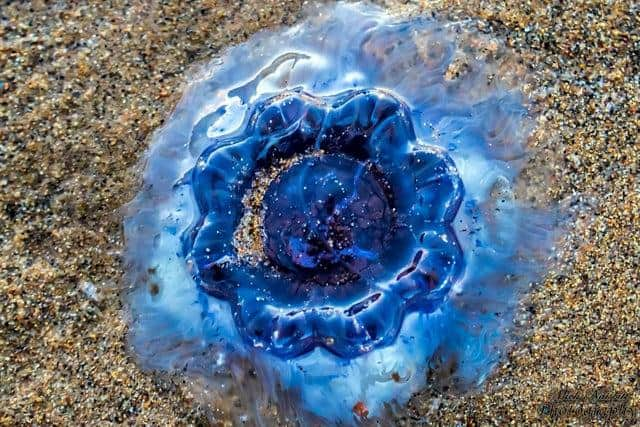Jellyfish warning as hundreds head to the coast in hot weather


The jellyfish warning comes as hundreds of people are expected to make their way to the coast to enjoy the warm weather on Friday.
Temperatures are set to hit the mid-20s on Friday, with more warm weather forecast over the weekend.
Advertisement
Hide AdAdvertisement
Hide AdSunderland City Council warned beachgoers to keep an eye out for jellyfish after reports that a number of the creatures had washed up on the shore.
The council said: “We have had reports of large numbers of jellyfish down at Seaburn beach today. We advise if you are at the beach please be aware of jellyfish if you are going in or near the water.”
This follows numerous reports from visitors of the sea creatures washing up on shores along the North East coast in recent weeks.
The impact of the sting varies from person to person and different jellyfish cause a more painful sting than others.
Advertisement
Hide AdAdvertisement
Hide AdDog owners should also be wary as dogs have suffered stings on the region’s beaches in recent weeks.
What should you do if you’re stung by a jellyfish?
According to NHS advice, most stings from sea creatures in the UK are not serious and can be treated with first aid.
Sometimes you may need to go to hospital, or ask a lifeguard or someone with first aid training for help.
Here’s what you should do:
Rinse the affected area with seawater (not fresh water) Remove any spines from the skin using tweezers or the edge of a bank card Soak the area in very warm water (as hot as can be tolerated) for at least 30 minutes – use hot flannels or towels if you cannot soak it Take painkillers like paracetamol or ibuprofen
Advertisement
Hide AdAdvertisement
Hide AdYou should not use vinegar, apply ice or a cold pack, cover the wound or touch any of the spines. And contrary to popular belief, do NOT urinate on the sting.
A message from the Editor: